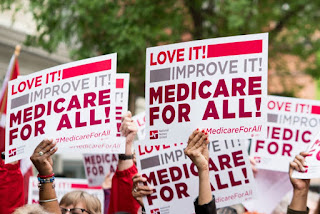Most Medicare Dual-Eligibles See Social Determinants of Health

Dual-eligible Medicare beneficiaries were more likely to experience the social determinants of health than non-dual eligibles. Over half of dual-eligible Medicare Advantage beneficiaries experience the social determinants of health, revealing a need for better social health programming within the program, according to data presented by Avalere at ISPOR 2019. The data, which included administrative claims, CMS data, and other data linked with zip-code level information for nearly 2 million beneficiaries, revealed that more vulnerable Medicare beneficiaries yield poorer outcomes. Specifically, these members have poorer health, higher utilization rates, higher healthcare spending, and lower quality measure scores. The researchers looked at the socioeconomic status of dual-eligible members, or members who qualify for both Medicare and Medicaid. While dual-eligible benefits usually vary by state, it tends to be a marker of extreme health need. Patients rec









